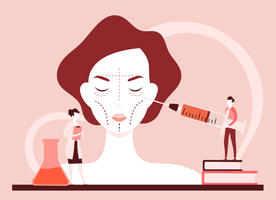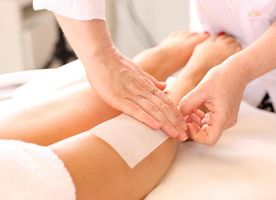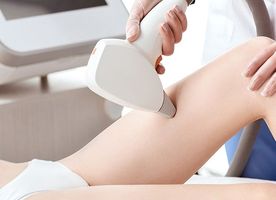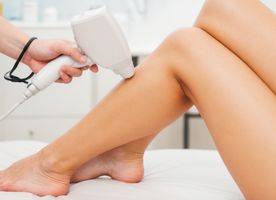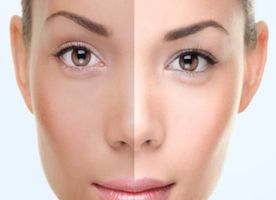Cosmetology in Chon Buri City
Search and Compare the Best Clinics and Doctors at the Lowest Prices for Cosmetology in Chon Buri City
Aesthara Clinic
Bujeong Clinic Chonburi
Pongsak Clinic Central Chonburi
The Vogue Clinic












































































































































No Time?
Tell us what you're looking for and we'll reach out to the top clinics all at once
Cosmetology is the study and application of beauty treatments to the skin, hair, and nails. It includes skincare, skin analysis, hair styling, cosmetics, manicure/pedicures, chemical hair treatment, non-permanent hair removal (such as sugaring and waxing), and permanent hair removal (such as electrology and intense pulsed light). Cosmetologists can also perform relaxation techniques, aromatherapies, reflexology, expert makeup applications, and theatrical applications.
Cosmetologists can be divided into several specialties, including hair color specialists, barber, skin care consultants, or more technical professions, such as Aestheticians who are licensed professionals who focus on treating skin-related issues, such as acne, signs of aging, and hyperpigmentation. They are also trained to perform technical procedures, such as microdermabrasion, cosmetic electrotherapy treatments (galvanic current, high frequency), mechanical massage (g8 vibratory ad vacuum), ultrasound/ultrasonic treatments (low level), and microcurrent (also referred to as nonsurgical “facelifts). Aestheticians who undergo special training may be able to offer permanent makeup applications, laser hair removal, light chemical peels, microblading, electrology, and eyelash extensions as well.
How Long Should I Stay in Chon Buri City?
After cosmetology procedures, you should be able to leave the cosmetologist office on the same day. You may even be allowed to leave for home during the same day of your cosmetology procedure. However, since some of the procedures, such as microdermabrasion, require several sessions you may want to stay in Chon Buri City until your whole treatment plan is completed. Your medical travel team should be able to advise you on this matter.
What's the Expected Recovery Time?
Most cosmetology procedures require little to no downtime and you should be able to go back to work immediately unless your cosmetologist says otherwise. You may experience some temporary side effects, but usually, nothing that requires bed rest.
What Aftercare is Required?
The aftercare will be different, depending on the type of procedure you underwent. In general, you need to take care of the area of skin where the procedure took place. For instance, you may need to stay out of the sun, use a rich moisturizer, avoid makeup, and keep yourself hydrated after microdermabrasion, micro-needling, and chemical peels. To maintain the results of your cosmetology procedure, you may need a touch up once or twice a year, depending on the treatment you undergo.
What's the Success Rate?
The success rate of cosmetology largely depends on the skills of your cosmetologist. However, given the advances in technology and understanding of the skin, nail, and hair, cosmetology procedures offer a high success rate and most people are satisfied with the results they get. Since almost all cosmetology procedures are noninvasive, the risks are also minimal. Some temporary side effects may include minor pain, discomfort, redness, and swelling. Rare, complications include infections, allergic reactions, burns, and severe pain. The key to avoiding these complications is to follow all instructions your cosmetologist gives you and also ensure that your cosmetologist is certified or licensed.
Are there Alternatives?
Alternatives to cosmetology depend on the type of procedure you underwent. If you go to a cosmetologist for a microcurrent to get a younger appearance, you can consider the surgical alternative to the procedure, which is a facelift. If you seek a cosmetologist help to regrow your thinning hair, you can get a hair transplant as the surgical alternative.
This information has been accurately sourced and verified by a medical professional for its accuracy, however, we strongly recommend you to consult with your doctor before pursuing medical procedures overseas.
































